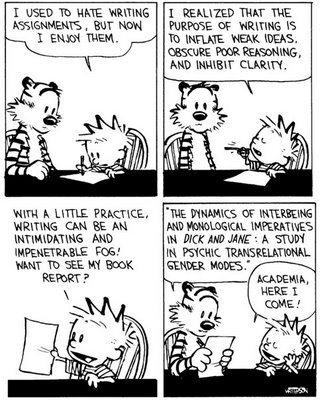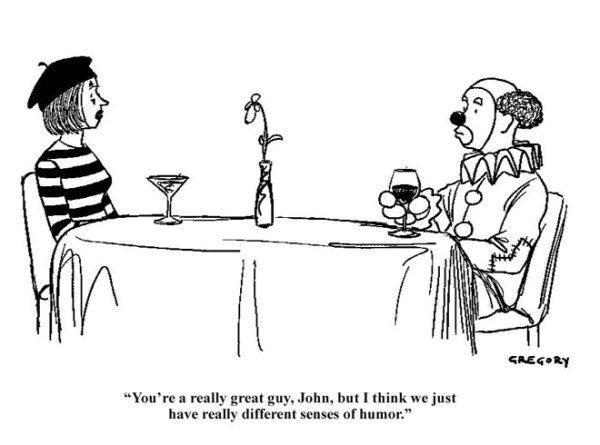Tracy Wuster
Hello readers. Two calls for papers out now for Humor Studies–one from the AHSA and one from the Humor Studies Caucus of the American Studies Association. See the Announcements page for a few more CFPs, as well. Please remember to send me any announcements, CFPs, etc. to post here and on the AHSA site.
****

The Humor Studies Caucus of the American Studies Association is seeking papers for the 2012 ASA Conference:
American Studies Association Annual Meeting:
“Beyond the Logic of Debt, Toward an Ethics of Collective Dissent,”
November 21-24, 2013: Hilton Washington, DC
http://www.theasa.net/annual_meeting/page/submit_a_proposal/
Proposals on any aspect of American Humor will be welcome, including, but not limited to:
Stand-Up Comedy Jokes Wit Merriment
Literary Humor (both high- and low-brow) Richard Pryor
Film Satire Will Rogers
Comedy Jokes Risibility Sitcoms
Laughter
Mark Twain Dirty Jokes Lenny Bruce
Ventriloquism the Circus Marietta Holley
subtle humor broad humor
Margaret Cho regional humor
transnational humor ethnic humor
and even puns…
Proposals due by: January 11th
Panels will be assembled for submission by the January 26 deadline.
Proposals should be no more than 500 words and should include a brief CV (1 page). Please include current ASA membership status.
Proposals (and questions) should be sent to Tracy Wuster and Jennifer Hughes: [email protected] & [email protected]
****
American Humor Studies Association
American Literature Association
2013 National Convention
Boston, Westin Copley Hotel, May 26-29.
The AHSA plans to sponsor two sessions at the 2013 national meeting. We seek cogent, provocative, well-researched papers on the following subjects:
1. “Humor in Periodicals: From Punch to Mad”—Abstracts (300 words max.) are encouraged on the role of humorous literature in American periodicals from the early national period to the present. Subject adaptable to both humorous periodicals and humor in serious periodicals across a wide time range; thus, title will change to reflect composition of panel.
2. “Reading Humorous Texts”–Abstracts (300 words max.) are encouraged on the interpretation, recovery, or pedagogy of humorous texts from novels and poems to plays and stand-up. Some focus on the act of interpretation of humor in its historical, performative, formal, or other cultural context is encouraged.
Please e-mail abstracts no later than January 15, 2013 to Tracy Wuster ([email protected]) with the subject line: “AHSA session, 2013 ALA.” Notifications will go out no later than January 20, 2013.
***

***
Our friend and contributor sent along this announcement:
Persons interested in American humor may have a free and uncopyrighted copy of Scalawag, my biography of John N. Reynolds in Microsoft Word, e-mailed to them as an attachment by sending a request to [email protected]. It is not totally funny, but there are several chuckles here and there, and one or two outright laughs. Included are an amusing folk limerick and two examples of the prose of Walt Mason, one of the great but forgotten American humorists. I ran across Reynolds while working on my book on E.W. Howe. After completing the Howe book, I gathered as much material as possible and wrote an account of his life, making it both as factual and as entertaining as I could. Reynolds has no real importance, but I thought the general public would enjoy reading about him. I tried to get book publishers to agree with me, but without success. And I really didn’t have enough for a book anyway (76 pages). So I am giving it away. Who was John N. Reynolds? He was a hard-working college student, a self-ordained minister, a pioneer schoolmaster of brilliant success, a Sunday school superintendent, a newspaper editor, a music storekeeper, a sewing machine agent, a baker, a rogue, an inventor, a penitentiary inmate, a public speaker, a land salesman, a farmer, a candidate for public office, a banker, an itinerant evangelist, an insurance executive, a student of shorthand, an author, a book salesman, and a maniac — in approximately that order, but some of them more than once and some of them simultaneously. He was also — and in this he was quintessentially human — an enigma. You can read Scalawag on your computer or print it out. It’s free. And if you don’t like it, I’ll gladly refund every penny you paid for it. Sam Sackett
